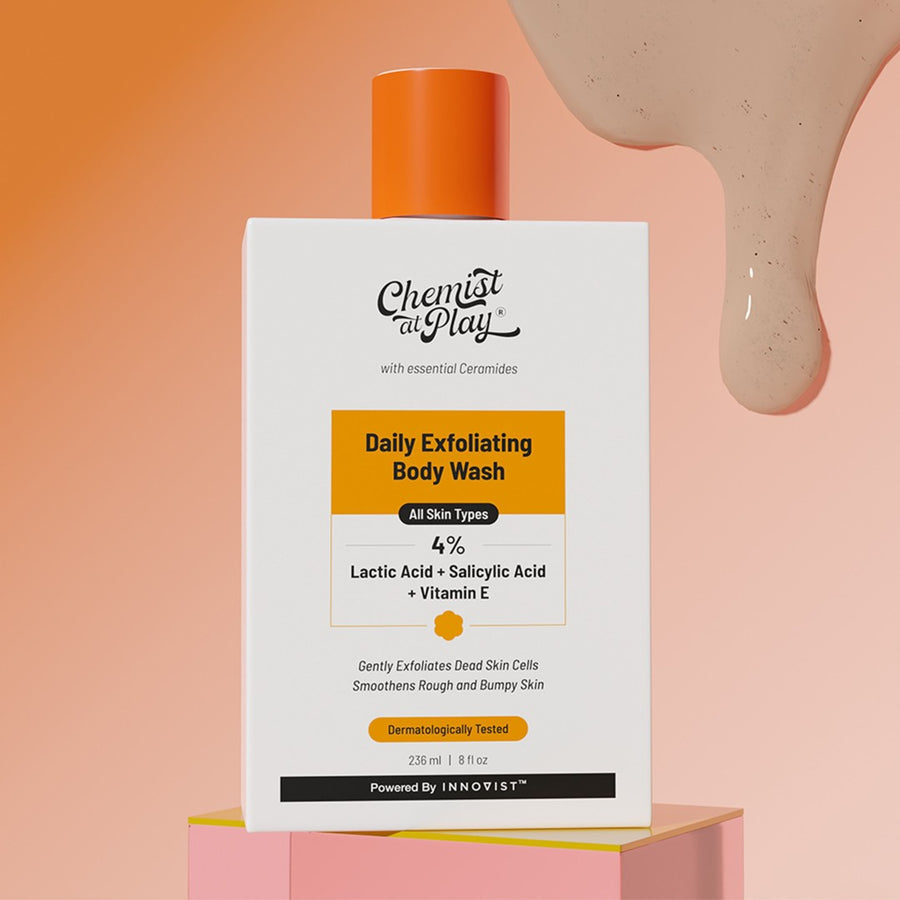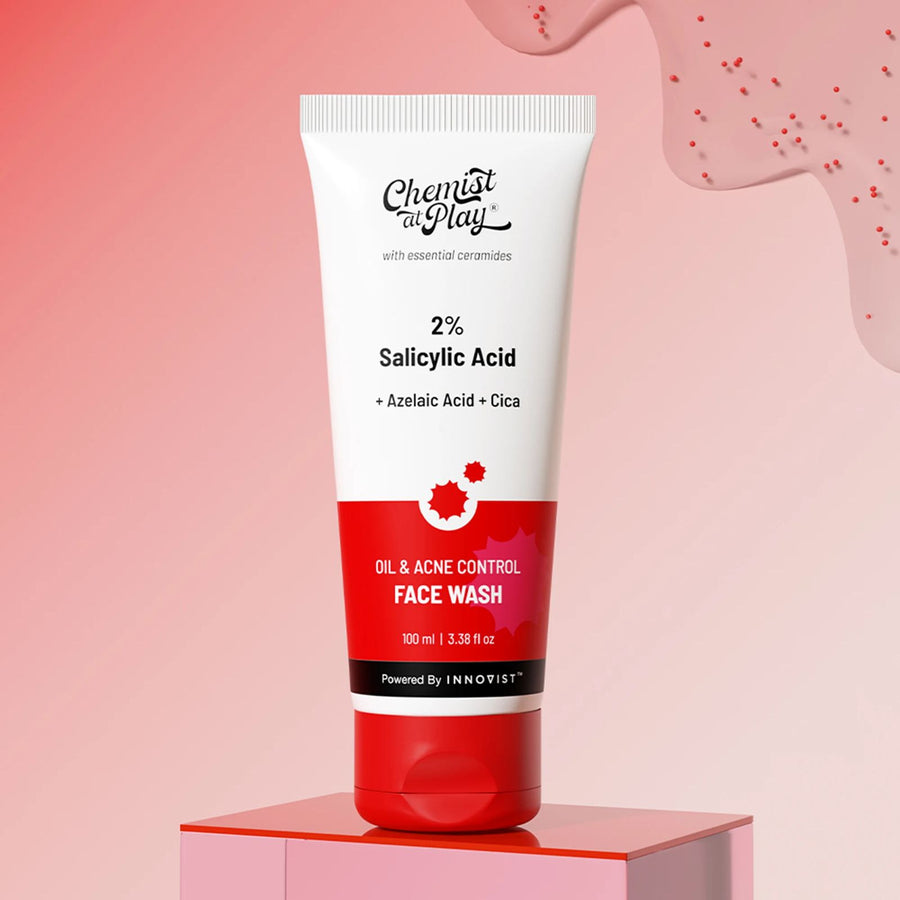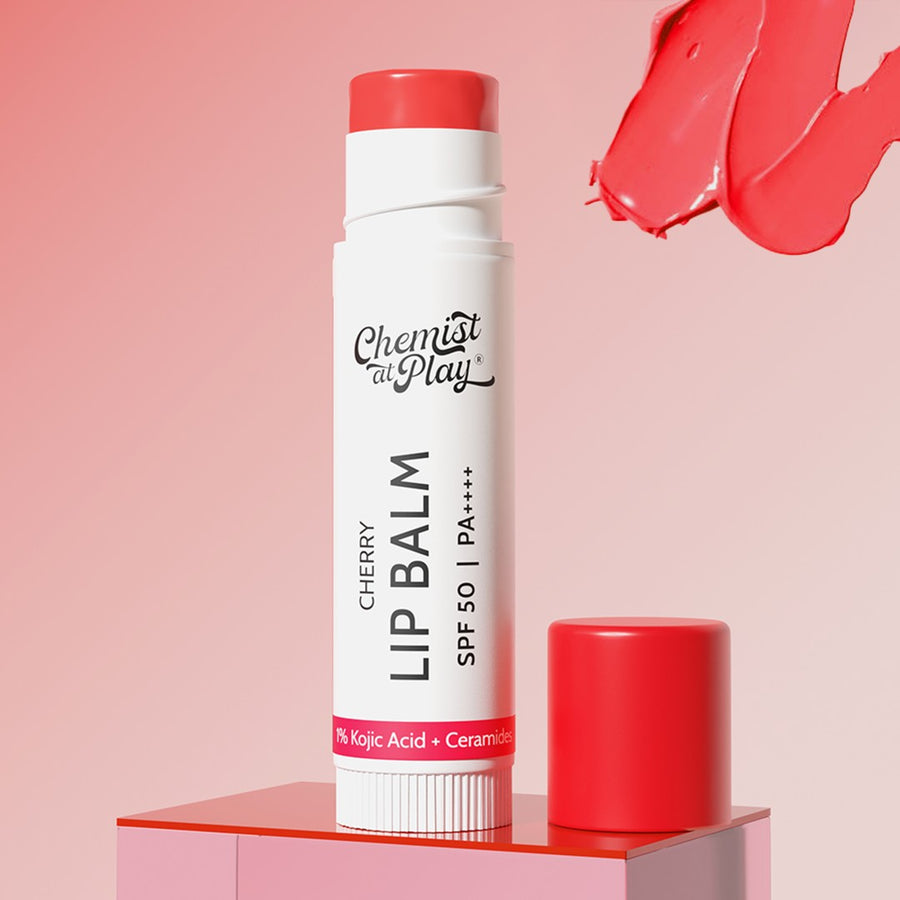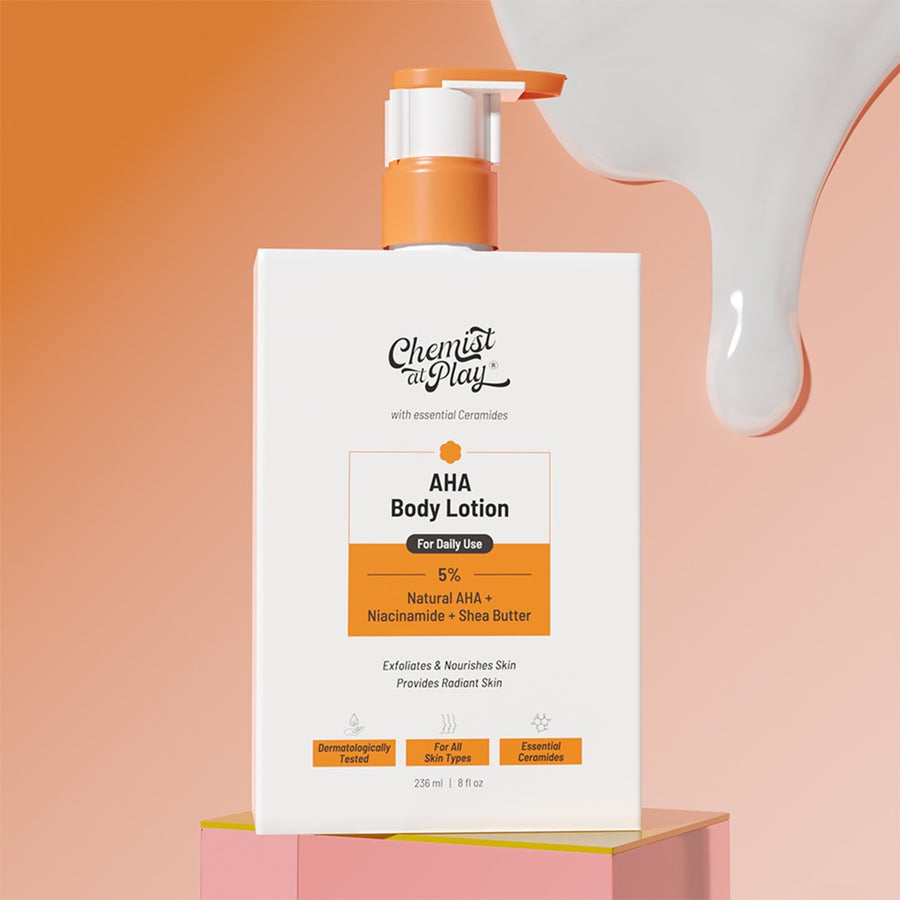
Skin Complexion Types with Skincare Tips
Melanin - the natural pigment that imparts the colour of the skin, is something that we all carry from birth. The level of melanin pigmentation in our skin is largely based on our genetics, and is something totally beyond our control! In fact, it is the difference in the extent of pigmentation that offers us our unique identity, and makes us look truly attractive in our own way!
In the present day scenario, thanks to the calling out of unrealistic beauty standards and body positivity movement, more and more people are becoming aware and appreciative of their skin tone! The needle has now shifted from the relentless effort to look fairer to enjoying medium skin tones in their full glory, and we couldn't be happier about the fact!
That said, each skin tone requires appropriate skincare to ensure a healthy skin texture. The first step to this, as you might have guessed, is to understand your skin complexion. Let us begin by understanding the various types of skin tones. We will then move forth to investigate the skin tone that you have, and finally discuss some skincare tips that might come in handy for your specific skin colour!
Skin Complexions Types In India

Based on the melanin content of the skin, skin tones can be categorized under six different heads, namely -
Skin Tone Type 1 - Extremely fair skin

This non-pigmented skin complexion is often a result of low levels of melanin and is characterised by pale skin tone almost white in colour. While this type of skin doesn't tan easily, it is extremely vulnerable to sunburn and damage, even with short bouts of sun exposure.
Skin Tone Type 2 - Fair skin

As the name suggests, this skin type is characterised by light skin, fairly white in colour. Sun exposure can often cause such skin type to burn, tan, and even peel easily. In fact, prolonged sun exposure often leads to freckles in people with fair skin.
Skin Tone Type 3 - Medium skin

This type of skin is usually characterised by a colour tone ranging from fair to beige, with an almost golden undertone. On sun exposure, this skin tone is more prone to getting tanned than developing freckles. Prolonged sun exposure is known to cause burns in some people with medium skin tones.
Skin Tone Type 4 - Olive skin

While seemingly odd name for a skin tone, the olive complexion is characterised by light brown colour. In most cases, people with olive skin tone rarely burn but can get tanned rather easily.
Skin Tone Type 5 - Brown skin

As the name suggests this almond skin tone, also known as caramel skin, is characterised by brown colour and can be categorised as melanin-rich skin. With almost negligible susceptibility to the development of freckles, people with deep brown skin do tan rather swiftly when exposed to sunlight.
Skin Undertones

Skin undertone can be defined as the hue that a given skin tone reflects from underneath its surface. More often than not, Warm, Cool and Neutral are regarded as the most prominent undertones. Contrary to popular belief, each skin colour can have any of these skin undertones.
Cool skin undertone
Skin hues such as blue, pink or red are classified as cool.
Warm skin undertone
Golden, peach or yellow undertones are often classified as warm,
Neutral skin undertone
Brown undertone or the absence of both cool and warm undertones are classified as neutral undertones.
Want to Know Your Skin Complexion Type? Try These Tests!
If you have always wondered 'What is my skin tone'? Then we have some simply DIY tests that you can perform with ease, and have a clear answer to this persistent question.
The Wrist Test For Skin Complexion Type
Also known as the Vein Test, this test requires you to simply examine the underside of your wrist and check the colour of your veins. In case your veins appear to be blue or purple - you have a cool undertone. If, however, you spot a green undertone, you can consider your undertone to be warm. In case, you simply cannot determine the colour of the veins, you have a neutral undertone.
The Jewellery Test For Skin Complexion Type
Take a piece of silver jewellery and another or gold jewellery, and then place it on your skin. If the silver jewellery looks more in sync with your skin tone then you have a cool undertone. If the gold jewellery looks better on your skin, then you have a warm undertone. If, however, both pieces of jewellery look equally good on you, you probably have a neutral undertone.
The Sun Test For Skin Complexion Type
In this test, you simply have to observe the way your skin reacts upon sun exposure. In people with cool undertones, the skin starts burning or turns red when under the sun. In people with warm undertones, the skin starts tanning quite rapidly.
The Colour Test For Skin Complexion Type
For this test. all you need to do is take out some clothes from your wardrobe - all of the different colours. Next, stand in front of a mirror in daylight or in a well-lit room.
If your skin tone looks best when trying colours such as blue, black , white or purple, you have a cool undertone.
Of your skin tone looks better when trying warm colours such as peach, yellow, brown, or olive you have a warm undertone.
If, however, your skin tone looks great regardless of the colour you try your undertone can be classified as neutral.
Skincare Tips For Different Skin Tones
 Similar to each skin type such as dry skin, oily skin, combination skin, etc, each skin tone also requires a different approach to skincare. Let us take a quick look at the best skincare routine you can follow, based on your skin complexions -
Similar to each skin type such as dry skin, oily skin, combination skin, etc, each skin tone also requires a different approach to skincare. Let us take a quick look at the best skincare routine you can follow, based on your skin complexions -Extremely Fair Skin and Fair Skin Tone
In case you have one of these skin tones, you are at high risk of sun damage, which may not only cause sunburns, premature aging and melanoma but also result in the onset of skin cancer. Hence, people with peaches and cream complexion must be extremely careful to minimize sun exposure.
 You can also rely on the following tips to help protect your porcelain skin tone better -
You can also rely on the following tips to help protect your porcelain skin tone better -
- Regardless of the weather - use sunscreen protection, preferably SPF 30 and above.
- Use sunglasses, hats, scarves and other such accessories when going out to limit your sun exposure.
- Once every month, examine your skin at home and look for unexplained growths, patches, skin color variation, or skin discolorations. In case you find any, consult your dermatologist immediately.
- Once every year, schedule a skin checkup with your doctor.
Medium Skin, Olive Skin, Moderately Pigmented Brown Skin, and Dark Skin Tone
While these skin types are not as vulnerable to the adverse effects of sun exposure, skin pigmentation can occur rather easily. Here's what you can do to limit the effects of UV exposure and maintain your natural skin color.
- Regardless of the weather - use sunscreen protection, preferably SPF 15 and above.
- Use sunglasses, hats, scarves, and other such accessories when going out to limit your sun exposure.
- Once every month, examine your skin at home and look for unexplained growths, or skin color variation. Unfortunately, in people with darker skin types, signs of skin cancer usually appear in parts of the body that are least exposed to the sun. In case you find any unexplained skin darkening or other issues consult your dermatologist immediately.
- Once every year, schedule a skin checkup with your doctor.
Essential Skincare Products for All Skin Types
Whether you have fair skin or dark skin, whether you have a honey skin tone or a tan skin tone, we believe that each of these human skin tones deserves the best of skincare. This is precisely why we are about to discuss some skincare products that should be a part of your everyday regime -
Exfoliators
Exfoliation is a basic skincare process that helps remove dead skin cells and cleans clogged pores to offer a fresher-looking, healthier skin!In this regard, Exfoliating Face Serum with 10% AHA + 1% Hyaluronic Acid can come in very handy. Ideal for Dull, Combination, Acne-Prone, and Textured skin, this serum is formulated using lactic acid which is a mild yet effective exfoliant, complete with the hydrating Hyaluronic Acid.
Moisturisers
Pocket-friendly and effective, a moisturiser helps in keeping the face hydrated and nourished throughout the day. One of the most convenient skincare products to use, an Hydrating Face Moisturiser can prove to be an exceptional addition to your skincare regime.
Face Toner
A face toner deeply cleanses clogged pores, controls excess oil production, restores skin's pH balance, and provides an instant burst of hydration! Using the Brightening Face Toner after cleansing your face can help you enjoy a gorgeous skin tone.
Vitamin Based Serums
Vitamin C reduces blemishes and can be conveniently introduced to your skincare regime via Vitamin C Face Serum. Simply using it once a day, can work wonders for your skin. If you wish to enhance its benefits even further, you can also opt for Chemist At Play’s Pore Minimising Face Serum!
Sunscreen
Last but not the least, sunscreen will prove to be almost as effective as any pimple removal cream. Right from preventing the occurrence of acne to ensuring you don't suffer from any scarring, spots, fine line, and other skin ailments, a high-quality broad-spectrum sunscreen will do it all for you!

































